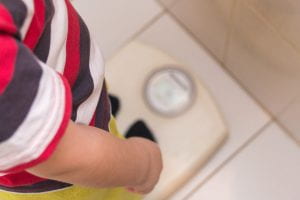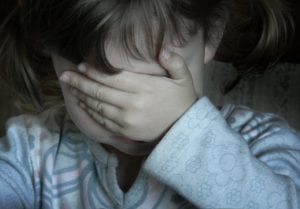
It’s no surprise that individual families provide different types of resources to their children; for example, some are able to provide more financial resources, while others offer more robust social supports. [Read more…]
Bridging the gap between research and real life

It’s no surprise that individual families provide different types of resources to their children; for example, some are able to provide more financial resources, while others offer more robust social supports. [Read more…]
 Nearly half of teenagers report being online nearly constantly, according to a recent survey by the Pew Research Center. And “screen-time” is pervasive among younger children, surveys show.
Nearly half of teenagers report being online nearly constantly, according to a recent survey by the Pew Research Center. And “screen-time” is pervasive among younger children, surveys show.
There’s no question that today’s youth are growing up in a culture ruled by digital technology. This phenomenon affects almost every aspect of their lives, including educational opportunities, social interactions, and personal development. Self-regulation—the ability to control impulses, organize behavior, and problem-solve constructively—is an important aspect that affects how young people interact with digital technology. [Read more…]
 Put away the silverware. Fold the towels. Feed the dog. Bring in the mail.
Put away the silverware. Fold the towels. Feed the dog. Bring in the mail.
There is a myriad of ways in which kids – starting as early as age 2 – can help out around the house. While some of this “helping” isn’t actually that helpful, there is strong evidence that you should require your kids to do chores anyway. [Read more…]
 You’ve probably been out in public and heard a parent shouting, swearing, or calling a child names. Or maybe you’ve found yourself in the position of losing your temper with your own children.
You’ve probably been out in public and heard a parent shouting, swearing, or calling a child names. Or maybe you’ve found yourself in the position of losing your temper with your own children.
Harsh parenting is defined as regularly engaging in negative coercive behaviors; it can include yelling, name-calling, hitting, criticizing, shaming, and isolating children. A large body of research demonstrates that harsh parenting is bad for kids. [Read more…]

Researchers estimate that there are upwards of 1 million Americans who were conceived using donor egg or sperm. Anonymous donation, in which the donor’s identity is not available to the donor-conceived person, is common in the U.S. and Canada, while many European countries require the donor’s identity be disclosed when the donor-conceived person turns 18.

Experiencing depression during pregnancy or the first year after a child is born significantly increases a woman’s risk of attempting suicide or dying by suicide, according to two new large studies. [Read more…]
![]()
When out and about, you may have heard parents shouting at their children. In fact, few people make it all the way through parenthood without ever yelling. But a new systematic review finds that regular verbal abuse—including shouting, threatening, belittling, humiliating, and name-calling—has negative consequences for children that can last a lifetime. [Read more…]
 The American Academy of Pediatricians is recommending a new approach to childhood obesity that addresses the condition as a complex disease and recommends intense behavioral treatment.
The American Academy of Pediatricians is recommending a new approach to childhood obesity that addresses the condition as a complex disease and recommends intense behavioral treatment.
Twenty-one of the nation’s top experts in childhood health developed new guidelines after reviewing the body of evidence on childhood obesity; this is the first time in 15 years the group has addressed the topic. [Read more…]
 “Can you please put your dishes in the sink?”
“Can you please put your dishes in the sink?”
…
“Please put your dishes in the sink.”
…
“I’m not sure you heard me. Can you put these dishes in the sink?” [Read more…]

Family dinner is a cultural norm that most families in the U.S. strive for; it’s a goal that has endured for decades. Just think of an episode of “Leave It to Beaver” with June and Ward Cleaver and their two sons sitting around a table set with fine China and a white tablecloth, discussing the day and eating a healthy meal. [Read more…]
 Child abuse remains a serious problem: Nearly 700,000 children are abused in the U.S annually. No one needs an academic study to understand that abuse and neglect take a terrible toll on young people, their families, and society. We now have clear evidence that child abuse has long-term effects on its victims’ mental and physical health throughout their lives. [Read more…]
Child abuse remains a serious problem: Nearly 700,000 children are abused in the U.S annually. No one needs an academic study to understand that abuse and neglect take a terrible toll on young people, their families, and society. We now have clear evidence that child abuse has long-term effects on its victims’ mental and physical health throughout their lives. [Read more…]
 It’s well-documented that in the majority of U.S. families, women do more of the household chores compared to men, even when both spouses work full-time jobs. When you factor in that women working outside the home tend to work fewer hours compared to men working outside the home, women still take on a disproportionate share of household chores. This is amplified when kids come into the picture, and frequently leads to psychological distress for women. [Read more…]
It’s well-documented that in the majority of U.S. families, women do more of the household chores compared to men, even when both spouses work full-time jobs. When you factor in that women working outside the home tend to work fewer hours compared to men working outside the home, women still take on a disproportionate share of household chores. This is amplified when kids come into the picture, and frequently leads to psychological distress for women. [Read more…]
Please, insert a valid email.
Thank you, your email will be added to the mailing list once you click on the link in the confirmation email.
Spam protection has stopped this request. Please contact site owner for help.
This form is protected by reCAPTCHA and the Google Privacy Policy and Terms of Service apply.

Copyright © 2025 · Magazine Theme on Genesis Framework · WordPress · Log in